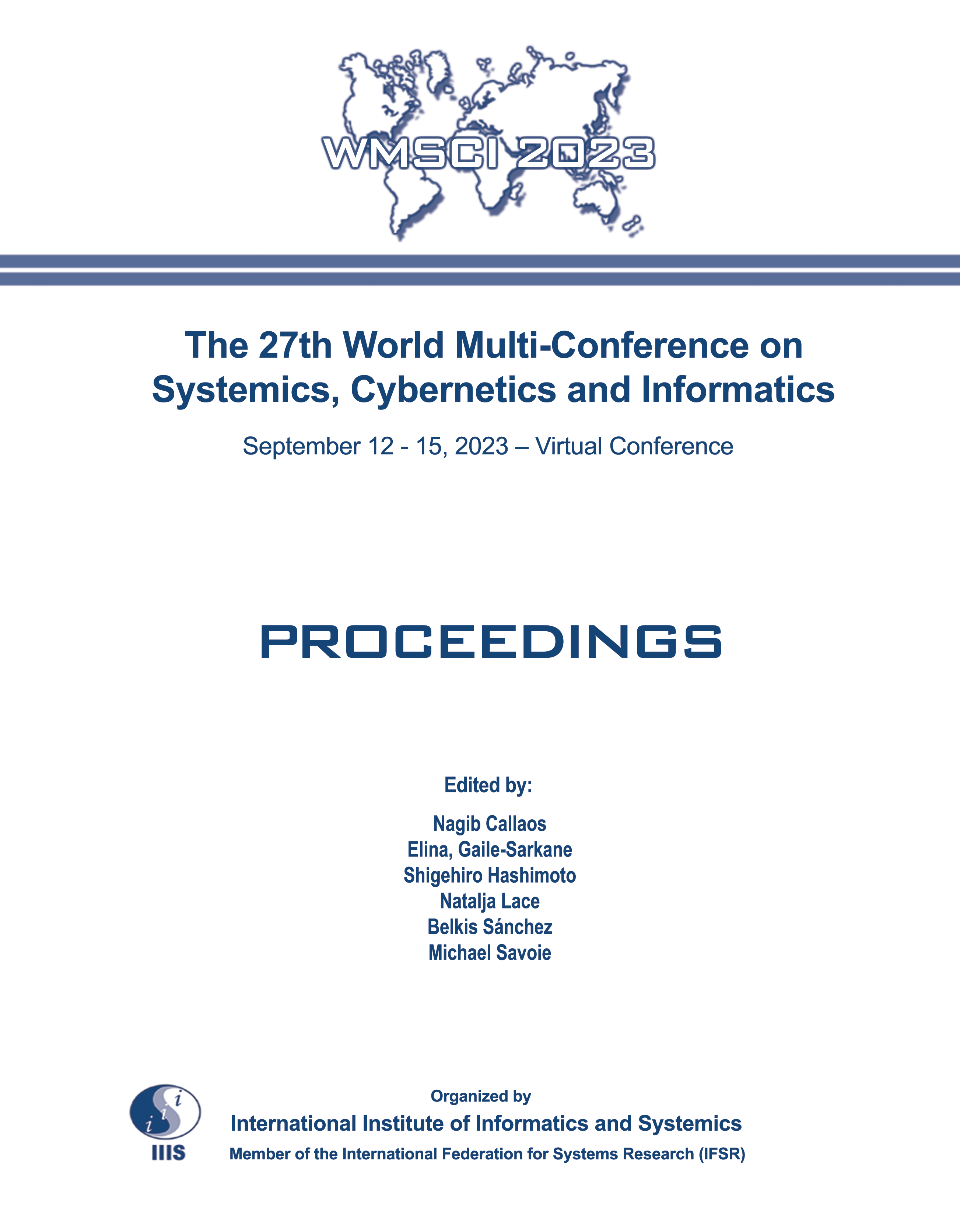2023 Summer Conferences Proceedings

|
Notes on Functional Causality
Kristian Alonso-Stenberg, Noureddine Si-Abdallah, Miguel Lloret-Climent
Proceedings of the 27th World Multi-Conference on Systemics, Cybernetics and Informatics: WMSCI 2023, pp. 360-367 (2023); https://doi.org/10.54808/WMSCI2023.01.360
|
The 27th World Multi-Conference on Systemics, Cybernetics and Informatics: WMSCI 2023
Virtual Conference September 12 - 15, 2023 Proceedings of WMSCI 2023 ISSN: 2771-0947 (Print) ISBN (Volume): 978-1-950492-73-2 (Print) |
|
Abstract
Causality is the principle that explains that there is a cause for every effect that occurs. Thanks to causality, we can know whether one variable or entity is the cause of another. When the variables involved are mathematical functions, we speak of functional causality. Although statistics offers us some interesting tools such as correlation, regression or probabilistic independence, it is still complicated to determine whether one variable is the cause of another. In this paper, we have developed the notion of functional causality, through the concept of partial derivative in time functions. In this sense, several definitions, graphical examples and mathematical properties have been proposed. Finally, we have obtained a relationship between functional and counterfactual causality, applying it to a real case study. Specifically, we have used both techniques to determine the causal effect that the post-COVID economic recovery measures have had on the Consumer Price Index in Spain.
|
||




